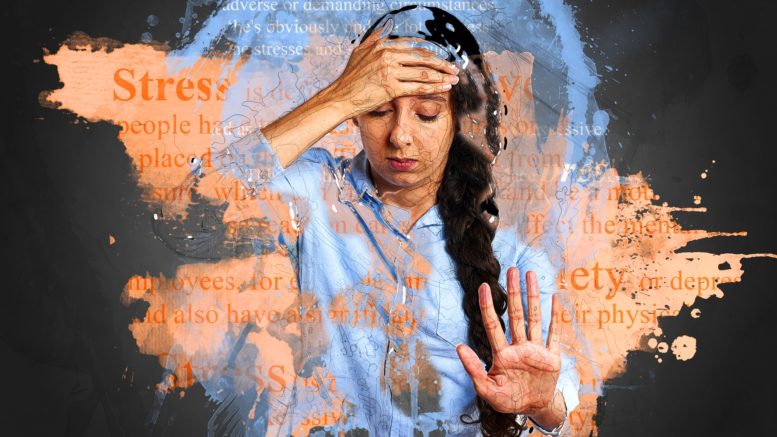Generalized anxiety disorder affects far more people than we realize. The reason is that anxiety can actually manifest itself in many ways—not just by giving the appearance of nervousness. Regardless of how it displays itself in a person, getting anxiety under control is essential for those who suffer from it as it can have such dramatic and negative effects on a person’s life.
One proven way to help the symptoms and causes of anxiety is meditation. There are a huge number of advocates championing the mindfulness based stress reduction program, developed by Dr. Jon Kabat-Zinn in the 1970s.
Here, we look at generalized anxiety disorder and its symptoms to see whether you may be suffering from the syndrome. We then examine how meditation and mindfulness can help in the treatment of anxiety and what the mindfulness based stress reduction program is exactly. It could be that it is suited to your needs, but you should always seek treatment for generalized anxiety disorder from a healthcare professional rather than self-diagnosis.
What Is Generalized Anxiety Disorder?
Generalized anxiety disorder is a syndrome that causes people to worry far more about situations than other people may do. While it is common for anyone to become anxious at times while dealing with the strains of everyday modern life, generalized anxiety disorder is chronic.
It can be that a person with generalized anxiety disorder worries uncontrollably about one aspect of their life such as their children, job or finances. Instead, they might worry about everything and anything, and find it hard to verbalize what they are actually worried about.
Sometimes, even when there is really no reason to worry, a person with generalized anxiety disorder will worry excessively anyway.
Symptoms Of Generalized Anxiety Disorder
There are many psychological and physical symptoms of generalized anxiety disorder in adults. Given that it is often thought to be a mental health issue, it surprises people when physical symptoms transpire. However, they are a very common effect of anxiety. You do not have to display all of the below to be suffering from anxiety. Instead, just one or two may indicate that you are affected by the disorder.
They can all prevent a happy life since they may stop you from wanting to participate in social activities with your friends and family. They can even stop a person from wanting to go to work. If that happens, it can start a vicious cycle as you start to worry even more about going back to work. That can negatively affect your self-esteem, making anxiety worse.
Psychological Symptoms Of Generalized Anxiety Disorder
- Irritability
- Lack of concentration
- Constant sense of foreboding
- Restless
- Feeling on edge all the time
Physical Symptoms Of Generalized Anxiety Disorder
- Heart palpitations
- Muscle tension and ache
- Shortness of breath
- Fatigue
- Dizziness
- Stomach aches
- Diarrhea
- Nausea
- Insomnia
- Pins and needles
- Dry mouth

How Meditation And Mindfulness Can Help Reduce Anxiety
Meditation and mindfulness can help reduce anxiety in a number of ways. First, meditation and mindfulness slow the breath and, therefore, the body. By concentrating on just one thing (like your breath or a body part) for a certain amount of time, your breath slows down, which is immediately helpful. By slowing the breath, you will also find that your heart rate slows too, which can help a person feel more relaxed.
Meditation and mindfulness are, therefore, good ways to help reduce stress on a broader scale, but they can also help in specific moments when a person is feeling excessively anxious. Meditation and mindfulness, in particular, stop a person from letting a moment or situation take over their powers of rational thought.
Mindfulness will help stop negative thoughts in their tracks. It, therefore, helps alleviate a situation that may otherwise have caused a person to be even more anxious. In this way, mindfulness is a form of cognitive-behavioral therapy, and it can be highly beneficial in teaching a person how to recognize negative or anxious thoughts. By recognizing them, especially before they become too powerful, it is far easier to control them and, eventually, overcome them.
The Mindfulness Based Stress Reduction Program
The mindfulness based stress reduction program is an eight week course that teaches its patients how to meditate to achieve a stronger awareness of both their mental and physical state. Along with body scanning and yoga, the course consists of a weekly two-and-a-half hour workshop and a one-day retreat. There is also a forty-five-minute homework assignment to complete daily. That may sound like a lot, but the purpose of the program is to instill lifelong habits in its practitioners. It shows that good mental health is a constant battle that needs attention so that we can better cope with the strains of modern life.
Body scanning, in particular, is taught in depth in the first four weeks of the program where individuals are taught to focus attention on specific parts of the body and see how it is feeling. The hope is that through body scanning, mindful meditation and yoga, patients will stop judging themselves too harshly. Instead, it champions living in the moment and only reacting to situations by focusing on the here and now.
Treating Generalized Anxiety Disorder With Meditation—Key Takeaways
Generalized anxiety disorder can be a very debilitating issue to grapple with. There are times that a person may find that they have it under control and it does not bother them for weeks or months on end.
However, for the times when keeping anxiety under control is far more difficult, using meditation as a means to get a handle on it has been seen to be very effective.
Even those who do not suffer from chronic anxiety will find that hiring meditation teachers is a very useful technique to improve overall mental and physical health.
